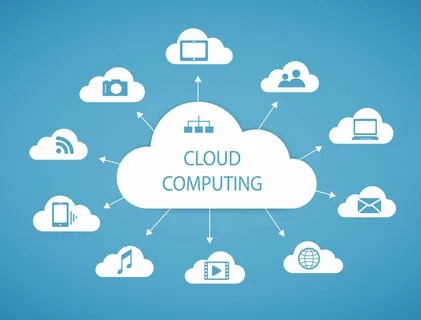Cloud computing delivers a range of computing services over the internet. It includes different types of infrastructure, such as infrastructure as a service, platform as a service, and software as a service.
Cloud computing in healthcare provides a range of benefits to both patients and physicians. Cloud systems for healthcare offer reduced costs, enhanced privacy, and facilitate better patient care through collaboration.
This technology in the medical industry describes implementing remote servers. These are accessed online to store, manage, and process healthcare-related data.
Cloud storage offers a flexible solution. It allows medical professionals and hospitals to leverage a network of remotely accessible servers. They can be stored in large volumes of data in a secure environment.
Superior Data Security:
In the past, physicians who used filing cabinets to store patient records faced significant risks of data theft. A flood, fire, or natural disaster can easily steal or destroy paper records. The lack of security surrounding these documents was a matter of significant risk.
After establishing the cloud computing-led EMR mandate, healthcare providers can develop their on-site data storage infrastructure.
Similarly, HIPAA-compliant cloud storage services offer data storage of patient EMRs that complies with legally mandated data security and privacy requirements.
Cloud-based EHR systems provide encryption methods that are still safe and more secure compared to traditional paper records or client/server systems.
Cloud-based solutions may be ideal for businesses with growing or fluctuating bandwidth.
Cost savings:
Cloud computing offers room for companies to save on IT costs. It eliminates the need to purchase and maintain their hardware.
Companies only pay for the resources they use, which can lead to significant cost savings, especially for businesses with fluctuating demand.
Agility:
Cloud computing can make your organizations more agile by allowing them to scale up or down their resources as needed quickly. This can be helpful for businesses that experience spikes in demand or need to expand their operations rapidly.
Efficiency:
Cloud computing can help companies be more efficient by automating many tasks involved in managing IT infrastructure. This frees IT staff to focus on other tasks, such as developing new applications and services.
Improved Patient Care Records:
A cloud-enabled healthcare solution enhances patient care. It brings innovation to physicians' desks. Patients can initiate virtual sessions with doctors or set up appointments simultaneously with a single click. It also offers auto-reminders for upcoming appointments and follow-ups using cloud services.
After surgical interventions, you get reminders for medicine usage and upcoming facility information on cloud platforms.
Doctors can supervise patient vitals with the help of cloud-connected medical infusion pumps. Users can easily share, view, and store their sensitive medical records in the cloud, as doctors can archive these details and take regular follow-ups.
CyberSecurity in HEI and PHI:
Protecting healthcare information is a serious concern. Transitioning medical records to the cloud offers security-protected health information (PHI) and healthcare information exchange ( HIE) systems.
Do you know about PHI and HIE?
Healthcare Information Exchange:
It helps medical organizations share data in mostly proprietary EHR systems. HIEs can be easily deployed with the linkage to a strategic cloud implementation methodology.
The cloud-computing systems can be designed for HIEs, which is more effective than traditional client-server systems.
Protected Healthcare Information:
Cloud computing can easily manage personal health records (PHR) and Electronic Health Records (EHR). It enables patients to access the PHR database with the help of software and share the PHR data.
This advanced platform allows patients to store, manage and share their PHR data without intermediary tools and software.
This technology allows medical data to be easily monitored, managed and shared through a user interface. This program also equips users with advanced software technologies to control shared data, multi-profile sharing, and communicate with designated health organizations.
The platform uses standard protocols such as SOAP, and CCR/CCD equipped with programmer interfaces.
What is a Cloud-based Healthcare System?
Cloud-enabled healthcare is the process of integrating cloud computing tech solutions with the medical domain. Healthcare providers are looking to collaborate with vendors which provide cloud computing solutions. But Why does it matter?
These solutions offer room for saving and retrieving digital records. This is crucial for both small and big healthcare giants. A cloud-first healthcare strategy addresses the below-mentioned requirements:
- Full support to large EHR, radiology images, and genome data sequencing datasets.
- It offers on-demand access to computing solutions with great storage for resources that are not feasible in the traditional healthcare system.
- You get capacity to share EHR among authorized physicians, hospitals, and care-providing institutions in different geographical areas.
- Improvement in analysis for data monitoring. It facilitates effective diagnostic results.
Bottom Line:
Cloud computing offers a range of benefits to the healthcare industry, like authentication, authorization, data persistence, data integrity, and data confidentiality. With these features, healthcare companies can easily perform their operations.


No comments yet